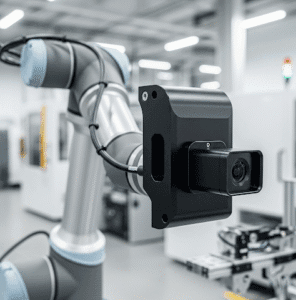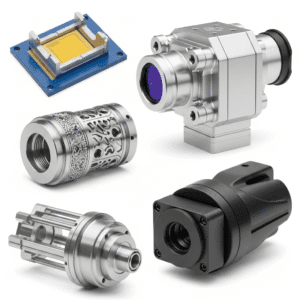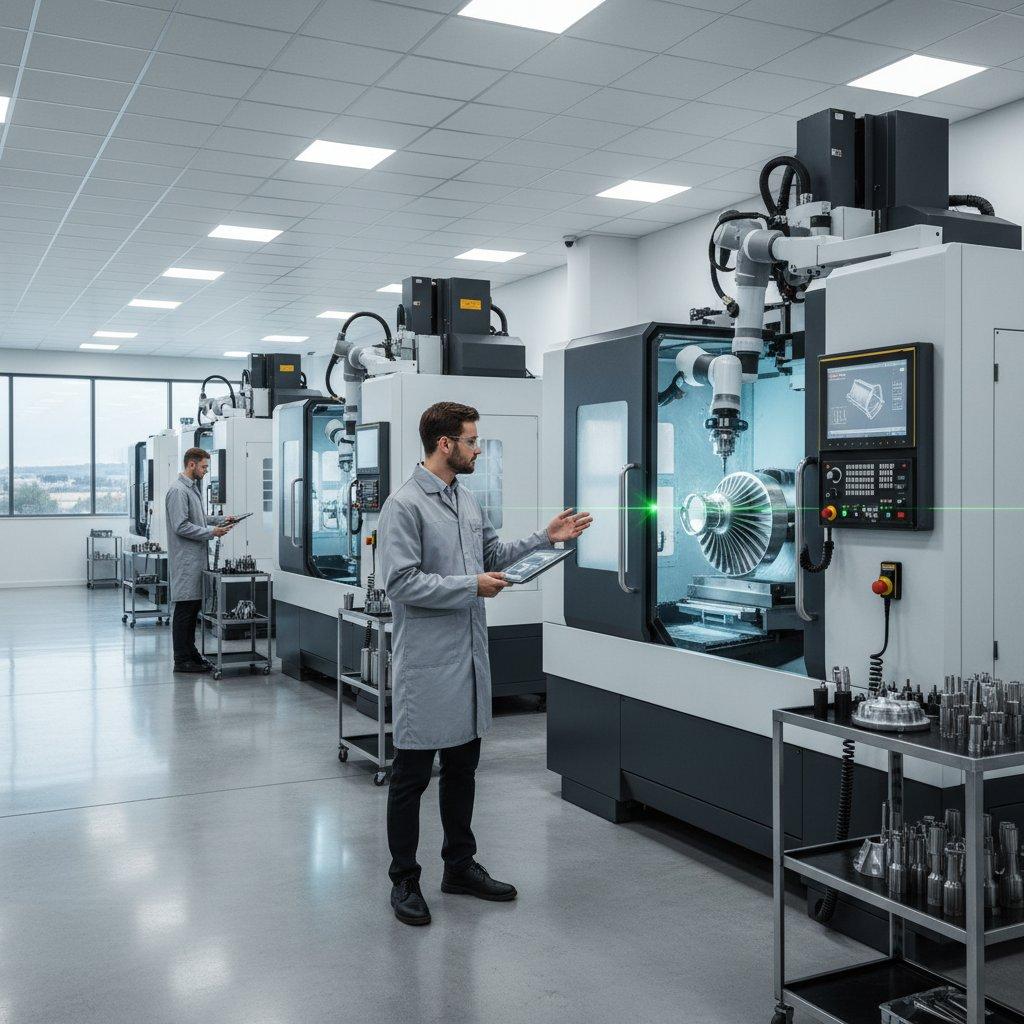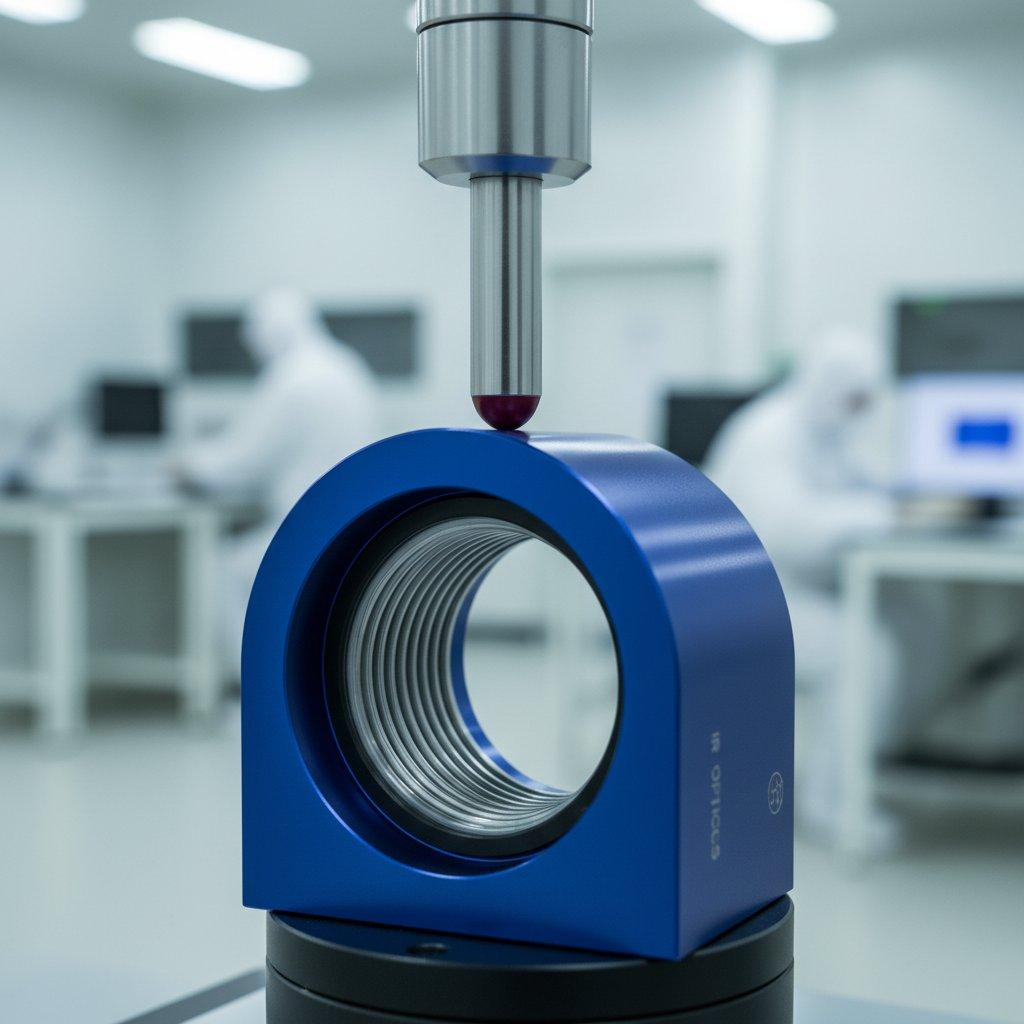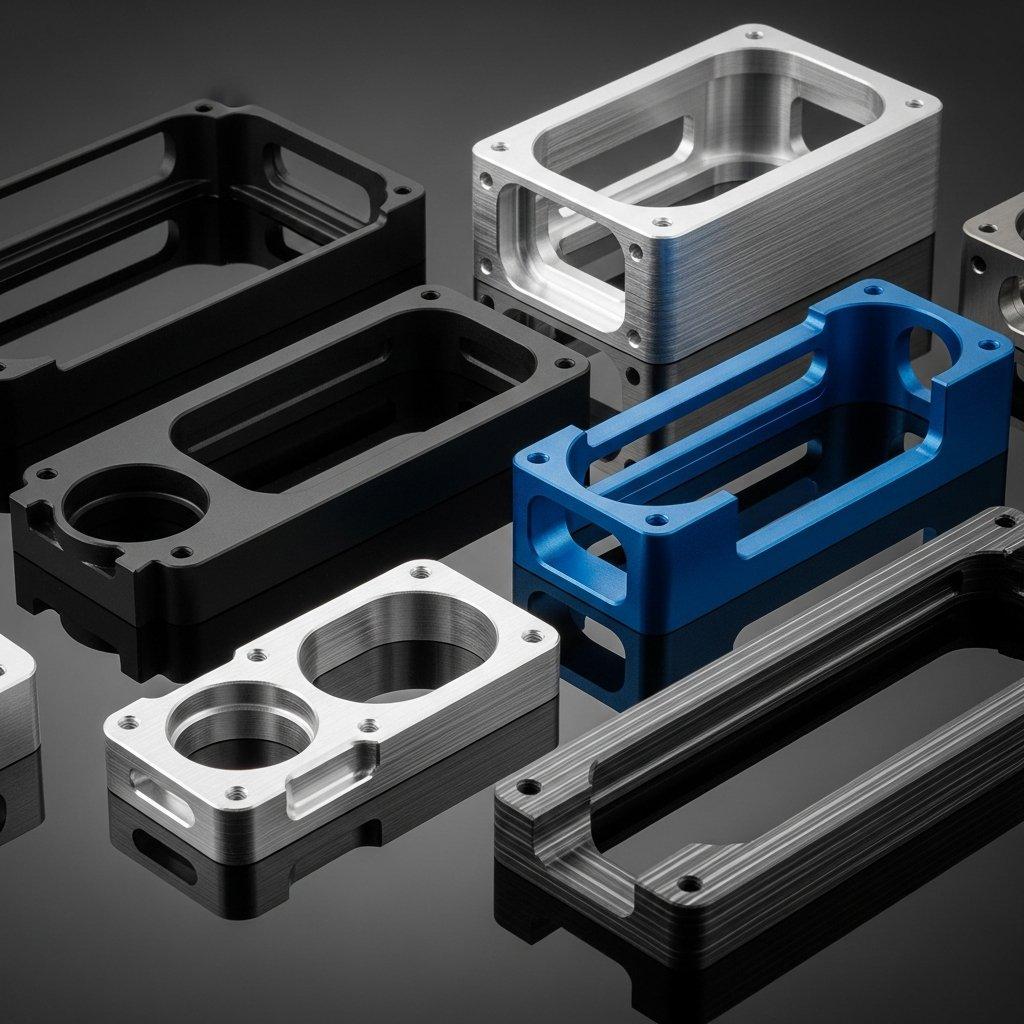High Precision CNC Milling Machining Services
We specialize in turning your complex design drawings into reality. Whether it is a single prototype or mass production of thousands of pieces, we can provide CNC milling solutions that combine precision, speed and cost-effectiveness.
Our CNC milling services
Accuracy up to ±0.005mm: Meet your most stringent tolerance requirements.
24-hour fast quote: Upload drawings and get professional quotes at the first time.
7-day fast proofing: From drawings to samples, the fastest delivery is one week.
Support 50+ materials: CNC milling of metals and engineering plastics
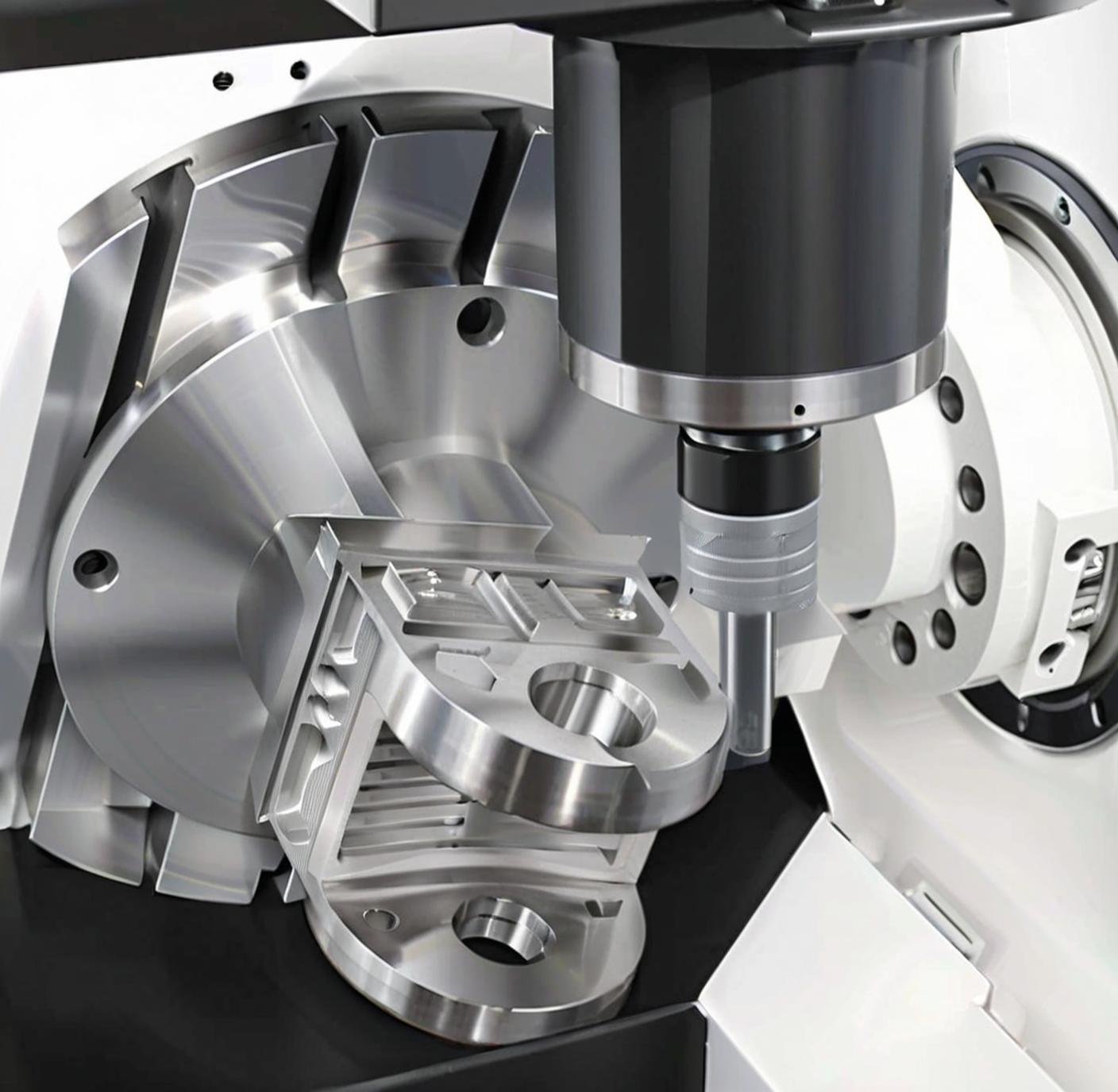
Rapid prototyping to volume CNC machining services
Machining Services
CNC parts case
- Aluminum CNC Milling Machining
- Stainless steel CNC milling machining
- Titanium CNC Milling Machining
- Brass CNC Milling Machining
- Plastic CNC Milling Machining
- POM CNC Milling Machining
Mastering Aluminum CNC Milling: A Look at Precision Manufacturing
Aluminum CNC milling is a cornerstone of modern manufacturing, prized for its ability to produce high-precision components with exceptional speed. This computer-controlled subtractive process carves parts from a solid aluminum block, offering incredible design freedom for a vast array of applications. The result is a finished product that is both lightweight and strong.
The price and difficulty of aluminum CNC milling machining are closely linked to the part’s complexity. Simple, 3-axis work is relatively affordable, while intricate 5-axis jobs command a higher price due to the sophisticated machinery and programming required. The choice of alloy also plays a significant role in the overall cost.
Advantages vs. Disadvantages
One of the main advantages of aluminum CNC milling is the material’s excellent machinability, which translates to faster production times and lower costs compared to steel or titanium. Aluminum’s high strength-to-weight ratio is another key benefit, making it ideal for aerospace and automotive industries. You can achieve a superior aluminum CNC milling surface finish through various post-processing techniques.
However, there are some disadvantages to consider for aluminum CNC milling. Certain softer aluminum alloys can be prone to warping or deforming if not handled correctly during the clamping and machining process. Additionally, the creation of long, stringy chips requires careful management to avoid interfering with the cutting tool, a challenge in high-speed aluminum CNC milling.
Metals, Appearance, and Use Cases
While many metals can be CNC milled, aluminum stands out for its versatility. Common alloys like 6061 offer a great all-around balance of properties, whereas 7075 provides superior strength for more demanding applications. The choice of a custom aluminum CNC milling service will often depend on the specific performance requirements of the final part.
The appearance of a milled aluminum part can range from a standard “as-machined” finish with visible tool marks to a highly polished or bead-blasted surface for a uniform matte texture. Anodizing is a popular option that adds a durable, corrosion-resistant, and colorful layer, a key consideration for precision aluminum CNC milling parts. The versatility in appearance makes it suitable for both functional and aesthetic components.
The use cases for aluminum CNC milling are extensive and varied. You will find these components in everything from the intricate housings of consumer electronics to the structural brackets in commercial aircraft. The ability to create complex geometries with tight tolerances makes it an essential process for producing high-performance parts, and a top choice for those seeking affordable aluminum CNC milling solutions. The benefits of aluminum CNC milling machining also extend to the medical field for surgical instruments and in the energy sector for various components. For those needing specific, non-standard components, a custom aluminum CNC milling parts producer can offer tailored solutions.
Stainless Steel CNC Milling: A Guide to Durable, Corrosion-Resistant Parts
Stainless steel CNC milling machining is a cornerstone process for creating robust components that must withstand harsh environments. This method uses computer-controlled precision to cut and shape parts from various grades of stainless steel, delivering exceptional durability and a clean, modern aesthetic. It’s the go-to solution when longevity and hygiene are critical.
The price and difficulty of stainless steel CNC milling machining are moderate, sitting between aluminum and harder exotic metals like titanium. Its toughness requires slower machining speeds and more robust tooling compared to aluminum, which increases cycle times and overall cost. The specific alloy chosen greatly influences the machining difficulty.
Material Comparisons and Key Benefits
When comparing stainless steel to carbon steel or aluminum, its primary advantage is superior corrosion resistance. Unlike standard steel, it won’t rust when exposed to moisture, and it offers significantly more strength and temperature resistance than aluminum, making it ideal for demanding applications.
A key advantage of CNC milling stainless steel is the ability to produce strong, wear-resistant parts that are also food-safe and easy to sterilize. This unique combination of properties makes it indispensable. A professional stainless steel CNC milling service can achieve very tight tolerances for critical components.
Challenges and Material Specifics
However, there are disadvantages to CNC milling stainless steel. The material is known for being “gummy” and work-hardening during the machining process, which can lead to rapid tool wear and breakage if not managed with proper feeds, speeds, and cooling. This makes it more challenging than many other metals.
Commonly used alloys include 304 for general-purpose use and 316 for superior corrosion resistance in marine or chemical environments. The appearance of a part from a high-precision stainless steel CNC milling operation is typically a bright, clean metallic finish. Various surface treatments, from bead blasting to electropolishing, can be applied by a custom stainless steel CNC milling parts manufacturer to achieve a desired texture and look.
Wide-Ranging Applications
The use cases for stainless steel CNC milling are incredibly diverse. You will find these parts everywhere, from surgical instruments and medical implants to food processing equipment and marine hardware. The reliability of components from custom stainless steel CNC milling makes them essential for the energy and aerospace industries. For projects requiring a blend of strength and cleanliness, exploring affordable stainless steel CNC milling services is a smart choice. The benefits of stainless steel CNC milling machining are evident in any application demanding a part that will not rust, tarnish, or fail under pressure.
Titanium CNC Milling: The Pinnacle of Performance Manufacturing
Titanium CNC milling machining represents the high-end of precision engineering, reserved for applications where performance cannot be compromised. This advanced manufacturing process involves shaping parts from solid blocks of titanium, a metal renowned for its exceptional strength, low weight, and superior corrosion resistance. It is the material of choice for the most demanding environments.
The price and difficulty of titanium CNC milling machining are significantly higher than for other common metals. Titanium’s inherent toughness and poor thermal conductivity generate immense heat during cutting, leading to rapid tool wear and requiring specialized coolants and slower machine speeds. This complexity makes finding a skilled professional titanium CNC milling service essential for success.
Titanium vs. Steel and Aluminum
When comparing titanium CNC milling to steel or aluminum, the distinctions are stark. Titanium offers the strength of many steels at roughly 40% less weight, and it dramatically surpasses aluminum in both strength and temperature resistance. This unique combination makes it irreplaceable in specific high-performance fields.
The primary advantages of CNC milling titanium are its unparalleled strength-to-weight ratio and its outstanding resistance to corrosion and extreme temperatures. These properties make it the ideal material for critical components in aerospace, medical implants, and high-performance racing. The process delivers parts that are both incredibly durable and lightweight.
Overcoming the Machining Hurdles
However, there are notable disadvantages to CNC milling titanium. The material’s reactivity and tendency to gall can complicate the machining process, requiring rigid setups and very specific cutting parameters. The high cost of the raw material itself, combined with the challenging machining, positions it as a premium option over more common custom metal milling solutions.
The most commonly milled alloy is Titanium 6Al-4V (Grade 5), which provides an excellent blend of strength and ductility. The appearance of a part from a high-precision titanium CNC milling process is a distinctive, sleek grey luster. Finishes can range from a smooth, machined surface to bead-blasted or polished textures, often tailored by a custom titanium CNC milling parts manufacturer to meet specific application needs.
Where Titanium Shines
The use cases for titanium CNC milling are specialized and critical. It is fundamental in creating jet engine components, satellite structures, and surgical instruments like bone screws and joint replacements. For projects demanding the ultimate in performance, seeking out affordable titanium CNC milling services—though still a premium—is a necessary step. The benefits of titanium CNC milling machining justify the investment for applications where failure would have catastrophic consequences. From deep-sea submersibles to advanced military hardware, expertly crafted custom titanium CNC milling parts are vital.
Brass CNC Milling: The Standard for High-Speed, Precision Parts
Brass CNC milling machining is a highly valued process known for its exceptional machinability and aesthetic appeal. This technique involves using computer-controlled cutters to shape parts from solid brass stock, creating components with high precision and an excellent surface finish. It is celebrated for being one of the easiest and most cost-effective metals to machine.
The price and difficulty of brass CNC milling machining are relatively low, making it a popular choice for high-volume production runs. Brass’s free-machining properties allow for very high cutting speeds and feeds, which reduces cycle times and tool wear. This efficiency translates directly into lower costs for the end customer.
Comparisons, Advantages, and Disadvantages
When comparing brass to other metals like steel or stainless steel, its primary advantage is speed and ease of cutting. While not as strong as steel, brass is significantly denser than aluminum and offers excellent corrosion resistance, particularly against water and heat, making it a unique material choice.
The main advantage of CNC milling brass is its outstanding machinability, which produces clean, sharp details and very smooth surfaces right off the machine. This often reduces the need for extensive post-processing. A professional brass CNC milling service can leverage these properties to produce intricate parts quickly and accurately.
However, a potential disadvantage to CNC milling brass is its limited strength compared to ferrous metals. It is not suitable for high-stress structural applications where the durability of steel is required. Additionally, the price of brass as a raw material can fluctuate based on copper market prices.
Alloys, Appearance, and Common Uses
The most common alloy, C360 brass, is prized by machine shops for its superb characteristics, making it a go-to for any custom brass CNC milling parts manufacturer. Its composition results in small, manageable chips that are easy to clear from the cutting area, further enhancing the efficiency of high-precision brass CNC milling.
The appearance of a freshly milled brass part is a bright, lustrous gold, giving it a premium look perfect for decorative and functional applications. Over time, it develops a natural patina, though a clear coat can be applied to maintain its shine. This aesthetic quality is a key reason many choose custom brass CNC milling for visible components.
The use cases for brass CNC milling are extensive, especially in plumbing, electrical, and decorative hardware. You’ll find brass fittings, valves, musical instruments, and electrical connectors all produced through this method. The benefits of brass CNC milling machining—speed, cost-effectiveness, and corrosion resistance—make it a top choice for those seeking affordable brass CNC milling services for high-quality, reliable metal parts.
Plastic CNC Milling: Prototyping and Production Beyond 3D Printing
Plastic CNC milling machining is a versatile subtractive manufacturing process used to create precise and functional parts from solid blocks of engineered plastics. Unlike 3D printing, which builds layer by layer, CNC milling carves material away, resulting in components with excellent mechanical properties and tight tolerances. It is a go-to method for high-quality prototypes and end-use parts.
The price and difficulty of plastic CNC milling machining are generally low compared to metals. Most plastics are soft and easy to cut, which allows for high-speed machining and results in faster turnaround times and lower costs. The primary challenge lies in heat management to prevent melting and ensure dimensional accuracy.
Comparisons, Pros, and Cons
When comparing plastic CNC milling to 3D printing, CNC-cut parts typically exhibit superior strength and material properties that are true to the solid block, without the weakness of layer lines. This makes it a better choice for functional testing and mechanical components. It offers a bridge between prototyping and injection molding.
A key advantage of CNC milling plastic is the vast range of available materials, each with unique properties like high temperature resistance (PEEK) or excellent lubricity (Delrin/Acetal). This allows for the creation of parts with specific performance characteristics. A professional plastic CNC milling service can guide you to the perfect material choice.
The main disadvantage to CNC milling plastic is the geometric limitation compared to 3D printing; complex internal features or undercuts can be difficult or impossible to machine. Material waste is also higher, as the process subtracts from a solid block.
Materials, Appearance, and Applications
A wide variety of engineering plastics can be milled, including ABS, Polycarbonate, Nylon, and Acrylic (PMMA). The final appearance of a part from a high-precision plastic CNC milling operation is typically a smooth, matte, or semi-gloss finish with faint, visible tool marks. Vapor polishing or sanding can be used by a custom plastic CNC milling parts manufacturer to achieve optical clarity on materials like acrylic.
The use cases for plastic CNC milling are incredibly broad, spanning from form-and-fit prototypes to functional end-use parts. You will find milled plastic components in medical devices, electronic enclosures, and custom machinery jigs and fixtures. For those needing durable, one-off parts or small-batch production runs, finding affordable plastic CNC milling services is often the most practical solution. The benefits of plastic CNC milling machining lie in its speed, cost-effectiveness, and the superior quality of the finished product, making custom plastic CNC milling an essential tool for modern product development.
POM CNC Milling: The Engineer’s Choice for High-Performance Plastic Parts
POM CNC milling machining is a highly sought-after process for creating precise, durable, and low-friction plastic components. Also known by trade names like Delrin® or Acetal, Polyoxymethylene (POM) is a high-performance thermoplastic prized for its excellent mechanical properties. The CNC milling process carves parts from solid POM stock, producing components that are both strong and dimensionally stable.
The price and difficulty of POM CNC milling machining are relatively low, making it an attractive option for many applications. The material is renowned for its outstanding machinability, allowing for high-speed cutting that results in short cycle times and reduced costs. It cuts cleanly, producing excellent surface finishes directly from the machine.
Material Comparisons and Core Strengths
When comparing POM to other engineering plastics like Nylon, POM stands out for its lower moisture absorption and superior dimensional stability. While Nylon is tougher, POM is stiffer and has a naturally slippery surface, making it a better choice for precision moving parts.
The primary advantage of CNC milling POM is the combination of high stiffness, low friction, and excellent wear resistance. This makes it an ideal substitute for metal in many gear and bushing applications. A professional POM CNC milling service can easily produce complex geometries with very tight tolerances.
Considerations and Material specifics
A notable disadvantage to CNC milling POM is its poor resistance to strong acids and bases, and it can be difficult to bond with adhesives. Additionally, while it is strong, it can be brittle upon high impact compared to more ductile plastics like ABS or polycarbonate.
POM is available in two main types: homopolymer (POM-H), like Delrin, which offers slightly higher mechanical properties, and copolymer (POM-C). The appearance of parts from a high-precision POM CNC milling operation is typically an opaque white or black with a natural, semi-glossy luster. Its clean finish makes it suitable for visible mechanical components.
Applications Across Industries
The use cases for POM CNC milling are extensive, particularly for parts that slide, turn, or click. You will find it in automotive components, consumer electronics gears, medical device handles, and custom jigs and fixtures. The reliability of parts from a custom POM CNC milling parts manufacturer is critical in these applications. For projects requiring durable, low-friction components, seeking out affordable POM CNC milling services is a very effective strategy. The benefits of POM CNC milling machining, especially its stability and wear resistance, make custom POM CNC milling a cornerstone of modern mechanical design.
Blog
Top 2026 Ranking: Best CNC Machining Manufacturers for Precision Parts & Custom Services
Top CNC Manufacturers for Precision Parts Quick Solution: Identifying the best precision CNC machining companies for 2026 requires evaluating advanced capabilities, strict quality control, and transparent custom CNC machining services. ly-machining excels in all […]
Top Supplier for IR Lens Housing CNC Machining
Top Supplier for IR Lens Housing CNC Machining Precision in infrared optics is non-negotiable, and securing a top supplier for high-volume `CNC machining infrared lens housings` is paramount for project success. ly-machining offers the advanced […]
2026 Ranking: Top Recommended CNC Machining Manufacturers for Precision Parts
2026’s Top Recommended CNC Machining Manufacturers for Precision Parts Precision demands have intensified, making the `2026 Ranking of Recommended CNC Machining Manufacturers for Precision Parts` critical. The `best precision CNC machining manufacturers` combine advanced […]

